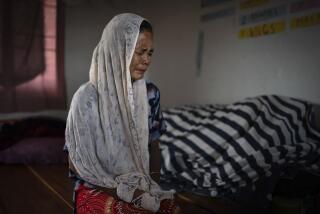‘What kind of justice is this?’ A cry from Pakistan’s remote tribal lands
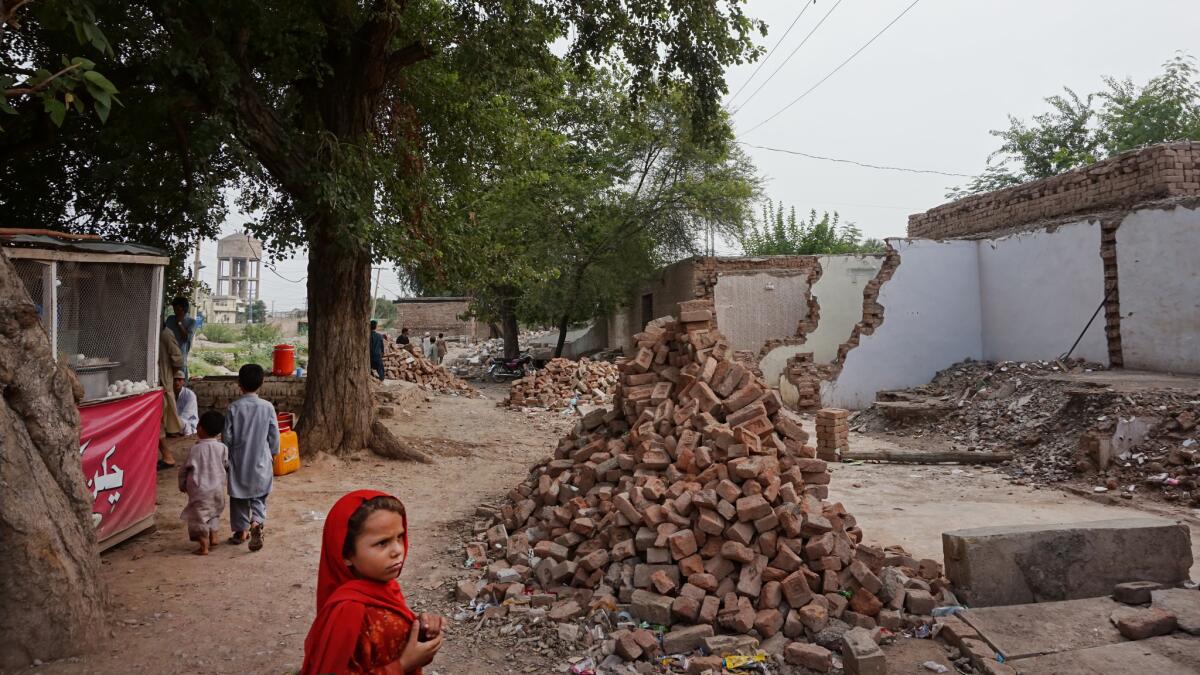
- Share via
Reporting from Jamrud, Pakistan — A frail Shah Khan Kukikhel was walking through the rubble of what used to be his brother’s home. The trouble, he recalled, had begun after his 19-year-old nephew began to leave the family compound for days at a time.
“We got worried, we made him swear on the Koran that he was not involved in any militancy,” said Kukikhel. In June, government officials turned up with an ultimatum: Hand over the nephew, Sheheryar, for interrogation, or the family home would be razed.
By then, Sheheryar was gone.
“We spent months looking around, we visited every madrassa we could, we asked all Sheheryar’s friends, but the deadline came and we couldn’t produce him,” said Kukikhel.
In most of Pakistan, a manhunt for one person — whether justified or not — would not imperil the rest of his family. But Kukikhel lives in Pakistan’s tribal region, a dangerous and nearly lawless area along the Afghanistan border. In recent years, it has been a favored hiding place for Taliban and Al Qaeda militants, and a focal point of the U.S.-led war on terrorism. Authorities suspected Sheheryar of being a member of a local Taliban group.
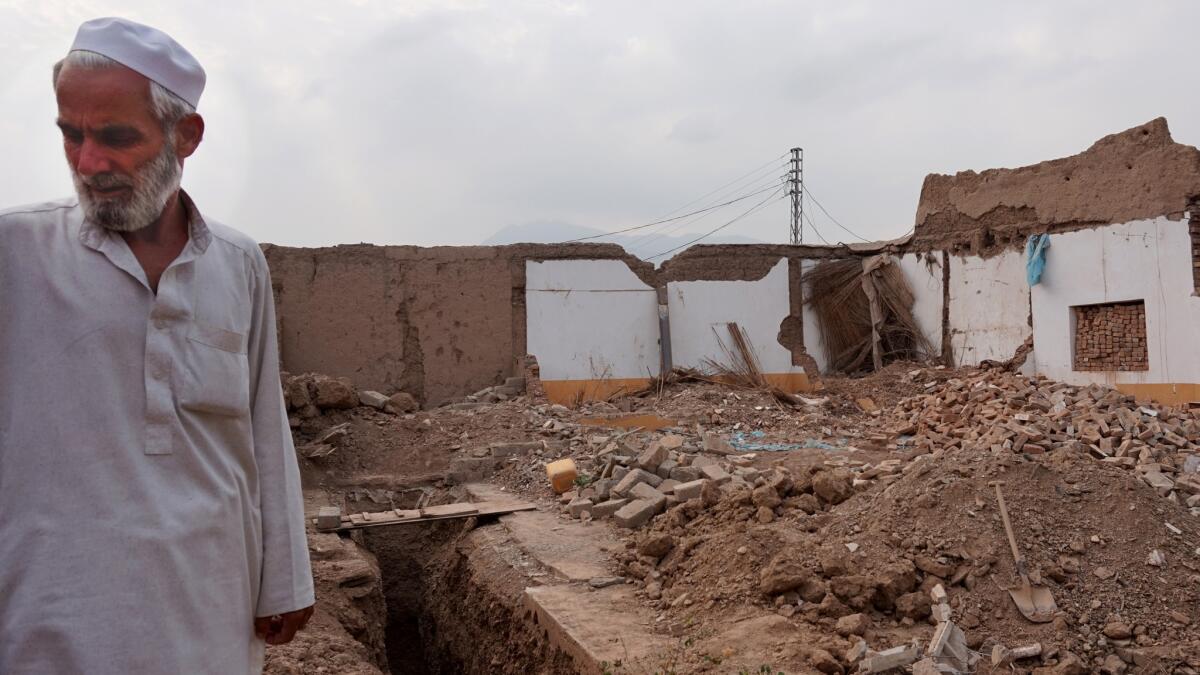
Neither Pakistan’s parliament nor its judiciary has any power in the tribal areas. Instead, the region remains subject to a 1901 set of British colonial laws called the Frontier Crimes Regulation, which has seen little modification since Pakistan gained independence in 1947.
Under those laws, federally appointed civil servants, called political agents, enjoy nearly unchecked power. And they wield an especially harsh form of criminal enforcement known as collective punishment.
Collective punishment allows government agents to exact retribution on an entire family, or even an entire tribe, for the misdeeds of one member.
Such was the experience of the Kukikhel family.
The family’s compound sits near the town of Jamrud, a few miles west of Peshawar, a city of roughly 2 million that serves as the administrative hub for the tribal region. The compound is off the main road, a storied highway that snakes west through the Khyber Pass and into Afghanistan.
Here, one tribesman can kill another in broad daylight, and if tribal elders decide it was justified, can get away with it. But if the political agent takes an interest, the entire family can be punished.
On Aug. 3, officials returned to the Kukikhel compound with a bulldozer and a document bearing the signature of tribal elders allowing them to raze part of the house.
“They drove the bulldozer through the outer wall, then completely destroyed my brother’s home,” Kukikhel said. Officials also arrested another one of his brothers, 65-year-old Khalil, and said he would be detained until Sheheryar turned himself in. That hasn’t happened yet.
“What kind of justice is this?” Kukikhel said.
In 2011, Pakistan amended the Frontier Crimes Regulations, restricting detention for collective responsibility to men ages 18 to 60, and establishing a tribunal for hearing appeals against the decisions of the political agent. But the restrictions are often ignored. In September, for instance, a roadside bomb exploded in Landi Kotal, along the road to the border with Afghanistan. Authorities arrested 30 tribesmen and a 10-year-old boy under the collective responsibility law.
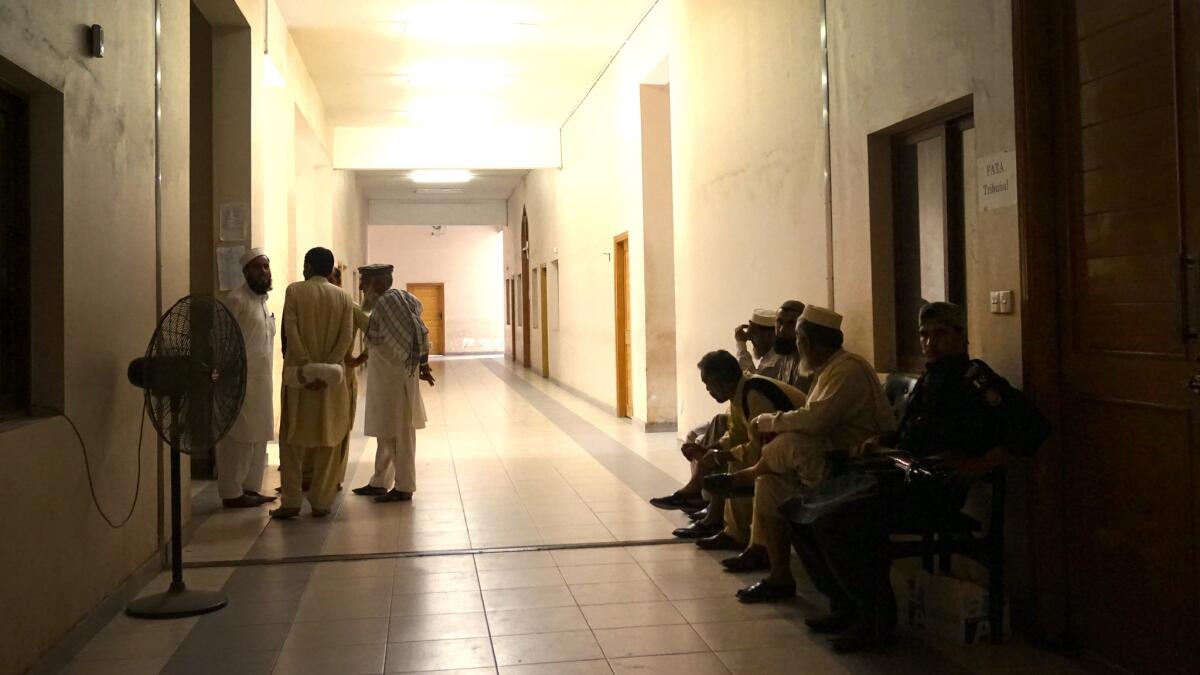
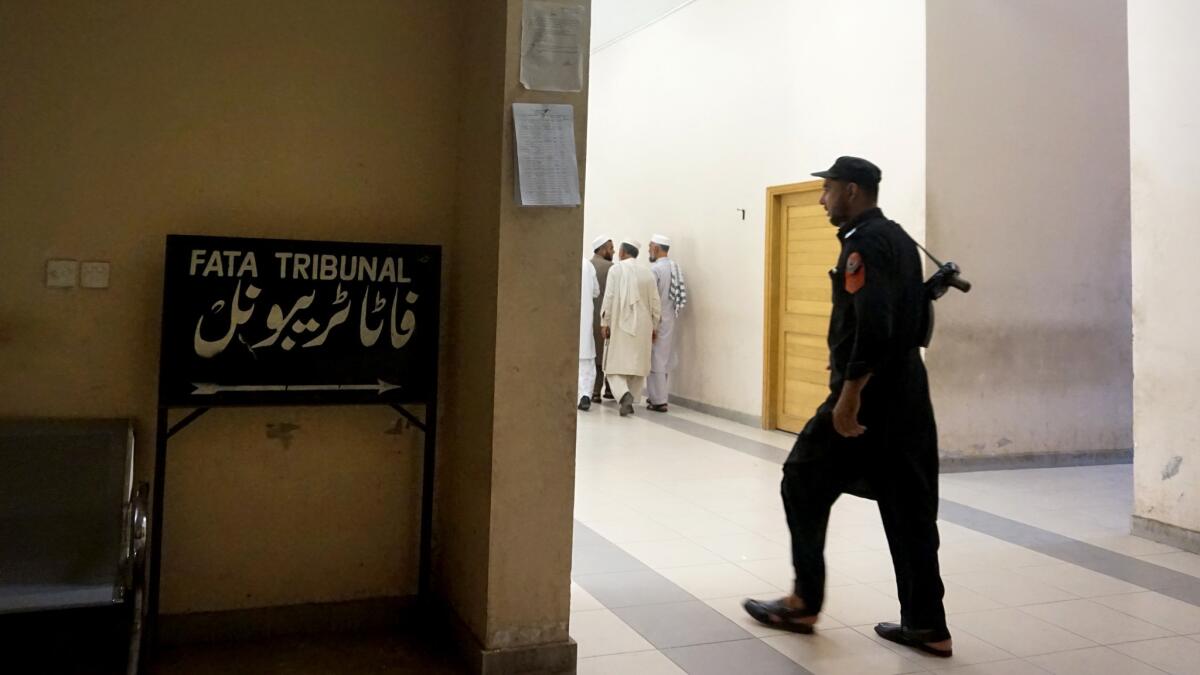
The tribunal, part of an $8.8-million U.S. and European grant to encourage good governance, has disposed of more than 2,200 appeals so far, but is short staffed and lacks the means to impose its powers. It is often unable to compel political agents to provide judicial records so it can deliberate appeals.
“The government needed to implement these reforms right away in 2011, but they have yet to even come up with procedural rules we need to do our work,” said the tribunal’s chairman, Sange Marjan.
Marjan, a Mehsud tribesman from South Waziristan who once served as a political agent, had his home razed as part of the collective responsibility law in 2009. Nearly 1 million locals left the area then ahead of a military operation to eliminate Taliban fighters. When they returned three years later, more than 4,000 homes had been leveled by authorities.
“How can we all be held responsible for the government’s failure to fight these militants?” said Marjan. “We all left when the army told us to do so, and when we came back we were punished. If we were terrorists, why would we have left in the first place?”
In 2014, after a Taliban attack killed 132 schoolchildren in Peshawar, the Pakistani military waged a new multi-pronged war in the tribal areas, which had served as the nerve-center for the militant groups. The civilian government, in an acknowledgment that it was time to lift the Frontier Crimes Regulation, issued a comprehensive plan to tackle terrorism that included an end to collective punishment. Yet none of the reforms have been carried out.
In the last two years, terrorism-related deaths across Pakistan have fallen by more than half, but for those living in the tribal areas, every bombing or drive-by shooting on soldiers still elicits the use of the most brutal measures available to authorities under the collective punishment law.
At an intersection on the main road to Peshawar, blocks of low-rise markets still stand shuttered, ordered closed two years ago by the government after a local factory was attacked by rocket-propelled grenades. “The political agent said we were responsible under the law,” said Zeeshan Afridi, one of the handful of local traders who had managed to open his shop again this year. “I had to sign a special agreement taking responsibility if any attacks happen again. What can I do? That’s the law here.”
“Where in the world does a country include an area that is mentioned in its constitution, but has no law applied there?” said Shah Jee Gul Afridi (no relation to Zeeshan Afridi), one of the leading voices in what has become a popular movement for mainstreaming the tribal areas.
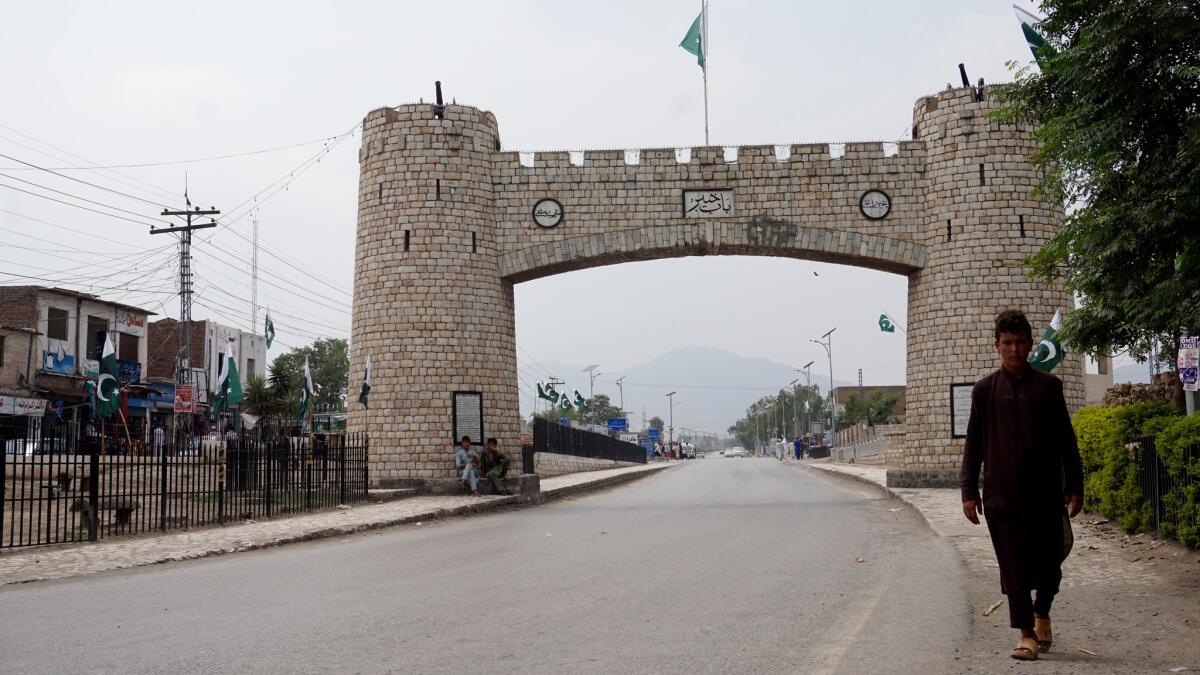
He too has spent time behind bars for collective responsibility. In 1992, a minibus was stolen near his family home near Jamrud. Shah Jee Gul Afridi and 20 other tribesmen were arrested and spent six months in prison until they agreed to pay the owner compensation.
“We later found out the minivan had been stolen and taken across into Afghanistan,” he said. “But we never got that money back, and we never got that time in prison back. What kind of a country has a law like that?”
Shah Jee Gul Afridi is one of 12 lawmakers from the tribal areas who hold seats in parliament, but are constitutionally barred from voting on legislation that could be applied in their constituencies. Still, Afridi has tried to push Islamabad to lift the Frontier Crimes Regulation and fully integrate the tribal areas into the country.
In a meeting with tribal leaders in August, Prime Minister Shahid Khaqan Abbasi said the government was “prioritizing legal reforms” in the tribal areas, and that Islamabad would ensure that practices like collective punishment would end. But residents are skeptical.
“We have been hearing about these reforms since we were children,” said Afridi. “We only want a sustainable, peaceful Pakistan. I only want to see this nation survive, and for that we need to end this law in the tribal areas.”
ALSO
As China and India tussle in South Asia, a pristine mountain kingdom is caught in the middle
Relations between U.S. and Turkey grow tense, with both countries suspending routine visas
Farooq is a special correspondent. This article was supported by a grant from the Pulitzer Center on Crisis Reporting.
More to Read
Sign up for Essential California
The most important California stories and recommendations in your inbox every morning.
You may occasionally receive promotional content from the Los Angeles Times.

